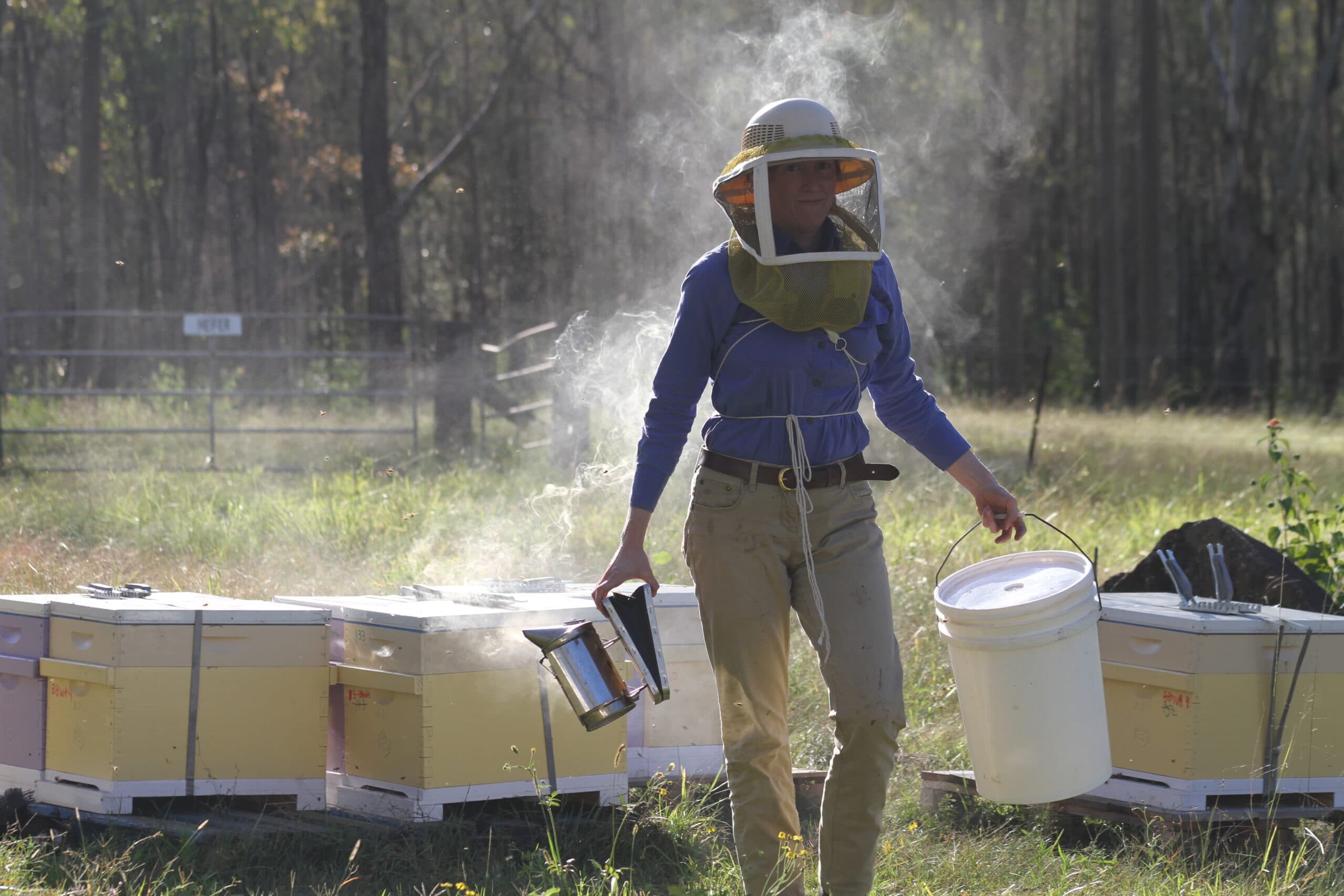That’s according to Elizabeth Frost, co-leader of the Plan Bee Genetic Breeding Program.
Work started on the apiary in December 2020, when NSW DPI Bee Manager, Slavi Nenov started building up the facility from a base of zero to a 250-hive strong apiary made up of 200 full strength hives and another 50 nucleus hives, from donated or purchased honey bee stock.
With a full-strength apiary made up of a nationally representative population, the team has commenced testing under commercial beekeeping conditions with almond production in the New South Wales Riverina region.
“The beauty of the reference population we have is that we have the freedom and flexibility to marry the science of what we are doing, with the commercial realities of managing colonies for pollination,” Ms Frost said.
The largest livestock migration in Australia
The almond pollination season is the largest livestock migration event of the year as billions of busy little bees get to work pollinating almonds in New South Wales, South Australia and Victoria.
The NSW almond pollination season will see the NSW DPI’s 200 production colonies headed by both artificially inseminated and naturally mated queens tested under commercial conditions. According to Liz Frost it’s a great opportunity to answer pollination related trait questions.
“We’re going to be able to test and record data around how our bees perform in a real-life commercial scenario. We can see how our breeding techniques have improved their foraging and how early they get out of bed, we can work out whether they are nectar or pollen foragers and how productive they are.
“We will be also be looking at pollen area in the brood and comparing quantities produced between the different hives,” she said.
“Most importantly we are striving to work out how we can best select for those traits which are most important for pollination, hive health and honey productivity.”
This is an exciting phase of the Plan Bee program as the recording of data from commercial activities is what will build the future business case for genetic selection. According to Elizabeth Frost, the level of support the project team has seen has been overwhelming and critical to the success of the program.









